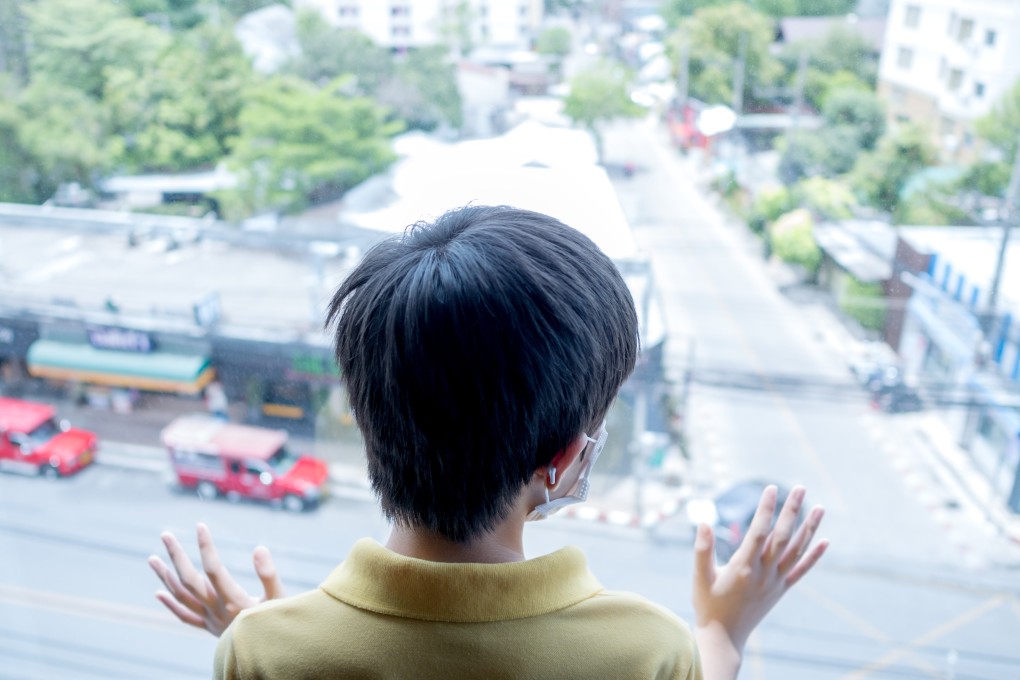Advertisement
How online classes change children’s brains, erode their youthful resilience and leave some exhausted or depressed
- Years stuck at home in Hong Kong, away from friends and peers. Constant policy flip-flops – school is on, school is off, you can see your friends, no you can’t
- Anti-Covid steps have made children less resilient and affected memory and social skills. ‘We could be looking at a very different generation,’ one expert says
Reading Time:5 minutes
Why you can trust SCMP
54

Michelle* feels like the walls of her bedroom are closing in on her. After three years of online classes, hours spent every day staring at a screen, the once social and bubbly 14-year-old is exhausted.
The youthful resilience that kept her going through the first year of the coronavirus pandemic is waning as she sees her peers around the world living their lives and having teenage fun.
“I feel I’m back where I was. I don’t want to kill myself, but I would rather be dead,” she says.
Advertisement
The pandemic has disrupted schooling for children around the world, but for those in Hong Kong the ordeal has lasted longer than for most others.
This is the saddest day of my life, but then everything feels the same, so it’s weird
Their online lessons began in 2019 with the closure of schools because of the anti-government protests that rocked the city for seven months. Then came the global pandemic, which has dragged on in Hong Kong as the city strives to meet the demands of China’s dynamic zero-Covid strategy.
Advertisement
Sabrina* is also sitting alone in her bedroom and feeling at rock bottom. The 13-year-old is grieving the loss of her best friend since childhood, who recently left Hong Kong for good with her family.
Advertisement
Select Voice
Choose your listening speed
Get through articles 2x faster
1.25x
250 WPM
Slow
Average
Fast
1.25x